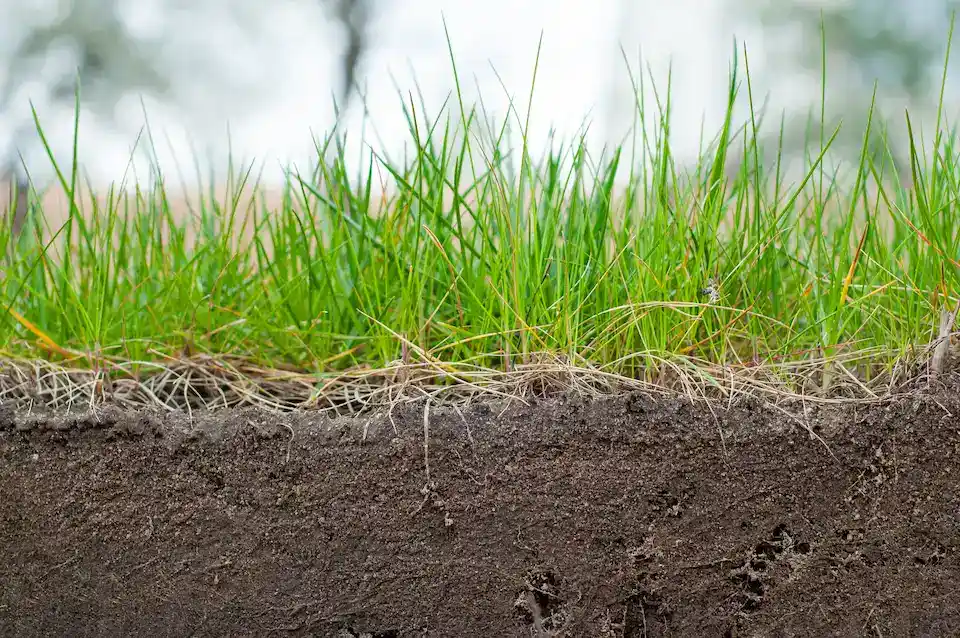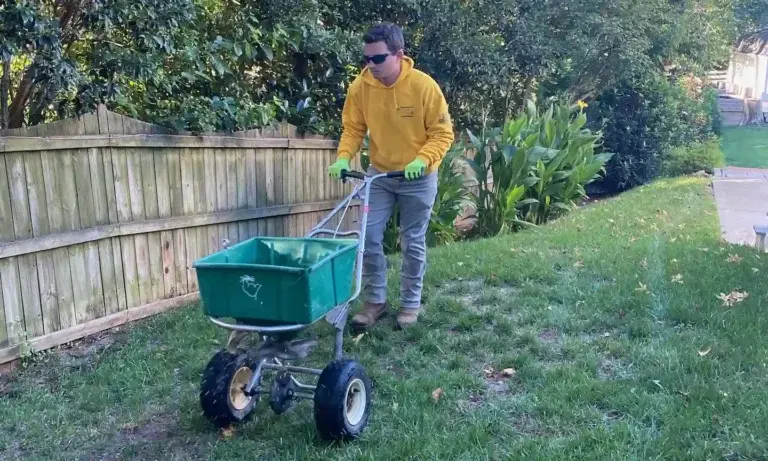Pre-Emergent Herbicides: What And When To Apply Pre-Emergent

If you’re a homeowner or landscaper, you’re likely familiar with the challenges that come with maintaining a healthy and attractive lawn or garden. One of the most important aspects of this maintenance is preventing weeds from taking over. Pre-emergent treatments are an effective way to accomplish this goal, but what are they, exactly and when should you apply them?
Our lawn fertilization experts at Turf Titanz in Wake County are helping local homeowners understand pre-emergent treatments, what they are, how they work, and when the best time is to apply them to get the most out of your lawn or garden.
Understanding Pre Emergent Herbicides
Pre-emergent herbicides are a type of weed control that targets weeds before they have a chance to sprout and grow. They work by creating a chemical barrier in the soil that prevents weed seeds from germinating. This makes them an effective way to control weeds, as they can stop them from growing altogether, reducing the need for more invasive weed control methods. Pre-emergent herbicides are commonly used on lawns, gardens, and agricultural fields to prevent the growth of unwanted weeds.
Pre-emergent Chemicals
There are several types of pre-emergent herbicides available on the market, each with its own active ingredient. Some of the most common chemicals used in pre-emergent herbicides include benefin, dithiopyr, prodiamine, and pendimethalin.
These chemicals work by inhibiting the growth of weed seeds and preventing them from sprouting. While pre-emergent herbicides are effective in preventing weed growth, they do not work on already established weeds. In order to control established weeds, post-emergent herbicides or manual removal methods are necessary.
Kinds of Weeds Pre-Emergent Herbicides Block
Pre-emergent herbicides are effective at blocking a wide range of weeds, but not all weeds are affected equally. They are most effective at controlling annual grassy weeds, such as crabgrass, foxtail, and annual bluegrass. These weeds are particularly problematic because they can rapidly spread and take over large areas, making them difficult to control once they have established themselves.
Pre-emergent herbicides can also be effective against certain broadleaf weeds, such as chickweed and henbit, although they may not be as effective as they are against grassy weeds. It’s important to choose a pre-emergent herbicide that targets the specific weeds you are trying to control, as different chemicals may have varying levels of effectiveness against different weed species.

How Pre-Emergent Herbicides Work
Pre-emergent herbicides work by creating a chemical barrier in your lawn’s soil that prevents weed seeds from germinating. They are applied to the soil before the weeds have a chance to sprout, typically in the early spring or fall. The herbicide is absorbed into the soil and remains active for several weeks, preventing any new weeds from growing. The chemicals in pre-emergent herbicides interfere with the plant’s ability to produce roots and shoots, which effectively kills the weed seedlings before they can emerge from the soil.
Liquid vs. Granular Pre-Emergent
Pre-emergent herbicides are available in both liquid and granular forms.
Liquid pre-emergents are sprayed onto the soil using a backpack sprayer or other application equipment. They are easily absorbed into the soil and are quickly effective at preventing weed growth.
Granular pre-emergents, on the other hand, are applied to the soil using a spreader. They are slower to absorb into the soil and may take longer to become effective, but they provide longer-lasting protection against weeds. Granular pre-emergents are also less likely to be washed away by rain or irrigation than liquid pre-emergents.
When deciding which type of pre-emergent to use, consider the size of the area to be treated, the type of weeds you are targeting, and the method of application that is most convenient for you.

When to Apply Pre-Emergent Herbicide
The best time to apply pre-emergent herbicide is before the weeds have a chance to germinate. In general, this means applying the herbicide in the early spring or fall.
Early Spring Application
Early spring is the most common time for pre-emergent herbicide application. This is because many annual weeds, such as crabgrass, begin to germinate when the soil temperature reaches 55°F (12°C). Applying pre-emergent herbicide before this point can effectively prevent weeds from growing. In addition to preventing weed growth, early spring lawn care practices, like applying pre-emergent herbicide can also help promote healthy turf growth by reducing competition from weeds.
Fall Application
Fall application of pre-emergent weed control can be effective for controlling winter annual weeds, such as annual bluegrass and chickweed. These weeds germinate in the fall and can be difficult to control once they have become established. Applying pre-emergent herbicide in the fall can prevent these weeds from growing and help keep your lawn or garden looking healthy throughout the winter and into the following spring.
Tips for Applying Pre-Emergent Herbicides
Applying pre-emergent herbicides can be an effective way to control weeds, but it’s important to follow proper application procedures to ensure the best results.
Here are some tips for applying pre-emergent herbicides:
- Read and follow the label instructions carefully.
- Apply the herbicide evenly to the soil surface.
- Water the area after application to help the herbicide absorb into the soil.
- Avoid disturbing the soil after application to prevent breaking the chemical barrier.
- Wear protective clothing and equipment to avoid skin and eye contact.
- Keep pets and children away from the treated area until the herbicide has been absorbed into the soil.
Common Pre-Emergent Application Mistakes
While pre-emergent herbicides can be effective in preventing weed growth, there are some common mistakes that can reduce their effectiveness.
Here are a few mistakes to avoid when applying pre-emergent herbicides:
- Applying herbicide too late: Pre-emergent herbicides need to be applied before the weeds have a chance to germinate. If you wait too long to apply the herbicide, the weeds may have already started to grow and the herbicide will be less effective.
- Using too much herbicide: Over-applying pre-emergent herbicide can be harmful to your lawn or garden and can even kill desirable plants. Be sure to follow the label instructions carefully and measure the correct amount of herbicide for the area you are treating.
- Not watering the area after application: Watering the area after application helps the herbicide absorb into the soil and create the chemical barrier needed to prevent weed growth. Skipping this step can reduce the effectiveness of the herbicide.
- Not reapplying the herbicide as needed: Pre-emergent herbicides typically provide protection for several weeks, but they may need to be reapplied if the weather conditions are particularly wet or if there is heavy foot traffic in the treated area.
Don’t Combine Pre-Emergents with Other Lawn Care
It’s important to avoid combining pre-emergent herbicides with other lawn care products, such as fertilizers or weed-and-feed products. This is because these products can interfere with the absorption of the pre-emergent herbicide and reduce its effectiveness. It’s recommended to wait at least 4-6 weeks after applying pre-emergent herbicide before applying any other lawn care products. This will ensure that the herbicide has been absorbed into the soil and is working effectively to prevent weed growth.
Contact Turf TitanZ Today To Learn When Pre-Emergent Treatments Are Right For Your Lawn
If you’re looking for effective weed control for your lawn or garden, pre-emergent treatments could be the solution you’re looking for.
Contact Turf TitanZ today to learn more about pre-emergent treatments and how they can benefit your lawn. Our team of experienced professionals in lawn fertilization and residential landscaping can help you determine the right time to apply pre-emergent herbicides and select the best product for your turf.
Don’t let weeds take over your lawn– call Turf TitanZ today at (919) 562-0771 or get started by filling out our contact form below to take the first step towards a healthier, more attractive lawn.
Contact Form
We would love to hear from you! Please fill out this form and we will get back to you shortly.
